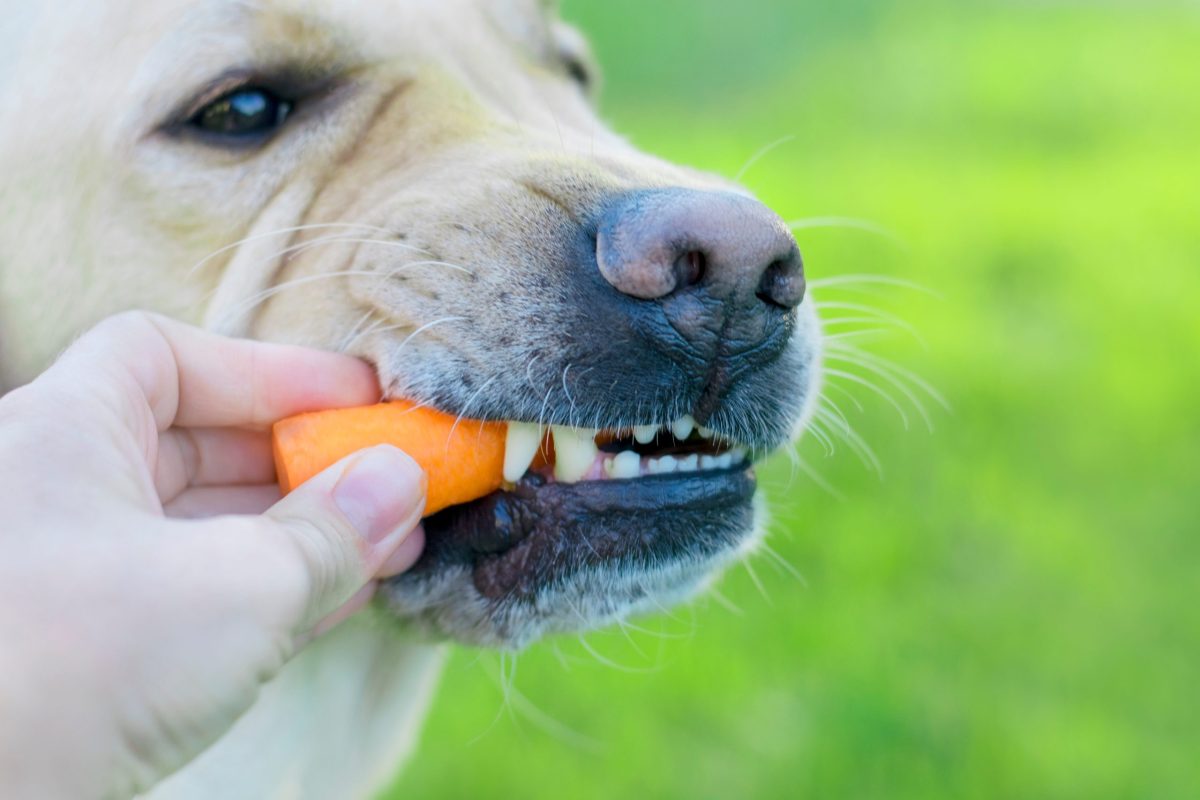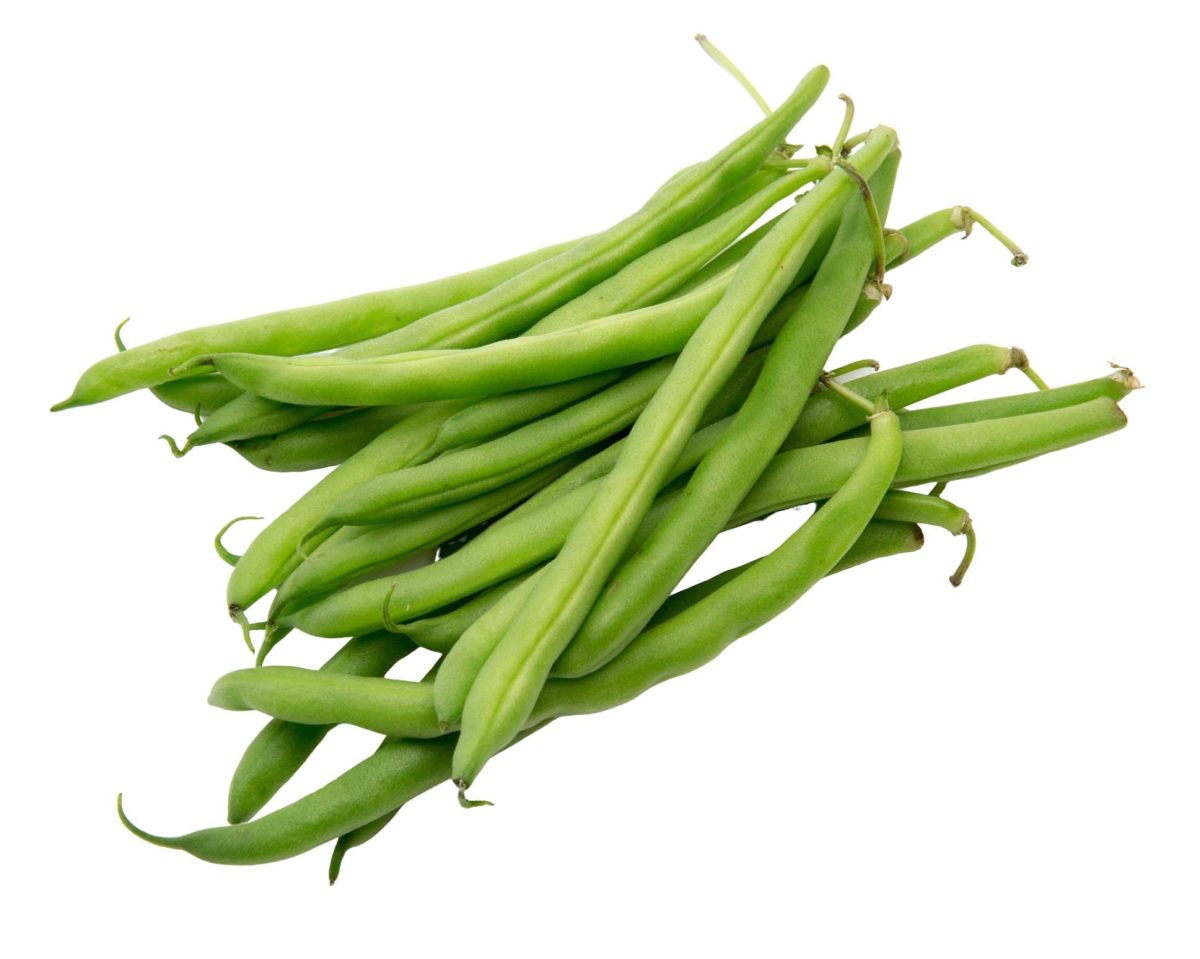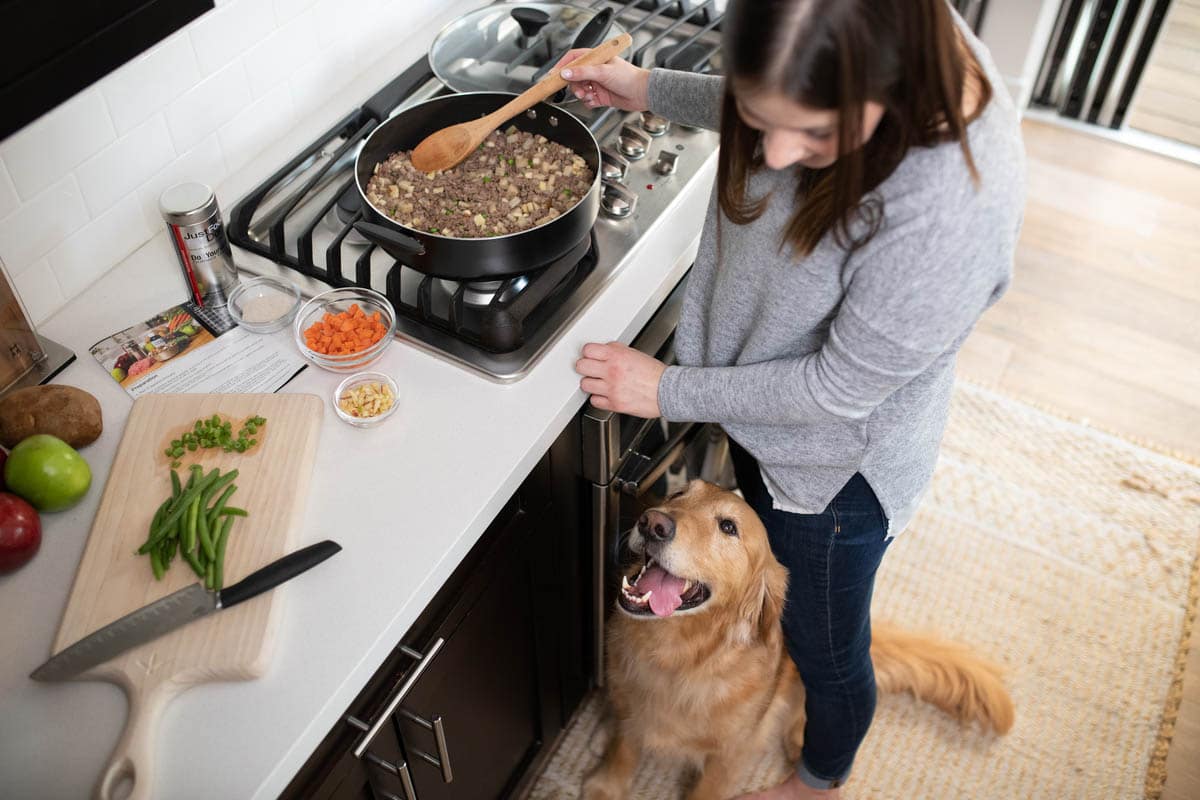What Snacks Can Dogs Eat?
Read on for a breakdown of what human foods are safe for dogs to eat and which foods to avoid.
What snacks can dogs eat? Let’s be honest. Giving your dog a treat of human food is probably as much fun for you as it is for your pooch. Who doesn’t love seeing their dog’s rapt attention, delighted anticipation, and tail-wagging joy during the snack-feeding ritual?
But it is important to remember not to get too carried away with your dog’s diet. If you are feeding your dog snacks all day, at what point do treats stop being treats?
Experts warn that moderation is key and that treats should be no more than 10% of your adult dog’s total daily calories. The bulk of their calories should always come from their daily pet food.
FIVE TIPS FOR HEALTHY SNACKING
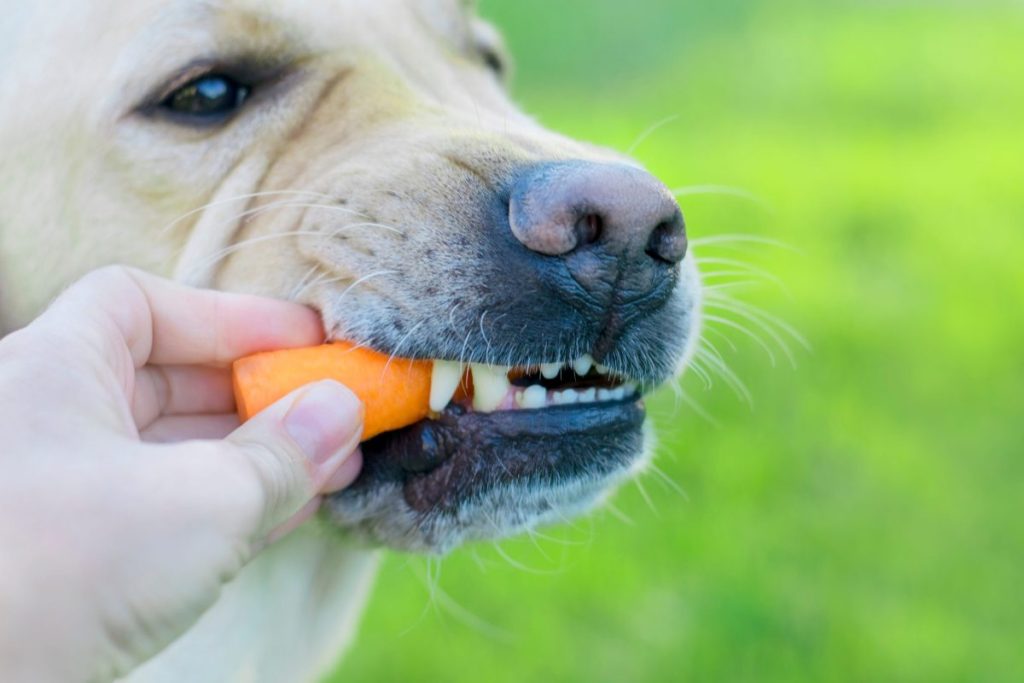
Here are five things to consider before granting your pup a snack:
1. Read the label
Nutrition, more than any other single factor, will determine your dog’s future health and happiness. Before you feed your canine companion anything, including meals or snacks, it’s critical to know precisely what is in your dog’s food.
2. Go natural
The healthiest pet treats are made from human-grade, whole-food ingredients. Unfortunately, there are a lot of unwholesome treats out there masquerading as healthy. So be vigilant, and read those labels!
3. Tailor treats for your dog’s needs
When choosing a snack, it is essential to consider things like your dog’s life stage, weight, allergies, physical health, and lifestyle. Different dogs have different nutritional needs, and it’s important to consider them when feeding snacks.
4. “Weigh” your options
Unfortunately, 54% of dogs are overweight or obese, and, like humans, over-snacking can be part of the problem. If your dog is a big bundle of love, choose treats wisely. Try safe fruits and veggies or other low-calorie snacks.
5. Consider medical conditions
Many dogs with health issues can still enjoy an occasional treat. Check with your DVM first if your dog has lactose intolerance, an easily upset stomach, pancreatitis, or other health condition.
FRUITS AND VEGGIES ARE A GREAT OPTION
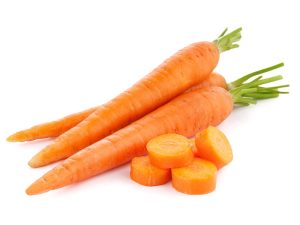
What snacks can you safely share with your furry friend?
In an article on WebMD, University of California clinical veterinarian Tami Pierce says, “If you’re not careful, treats can add a substantial amount of calories to your dog’s otherwise normal, healthy diet.”
She recommends that you consider healthy people food like fruits and vegetables. “Give them a baby carrot, a green bean, some broccoli,” Pierce says. “Those have virtually no calories, and dogs don’t care if you’re not giving them something meaty and fatty. They just want you to give them something.”
There are several low-calorie fruits and vegetables that are safe for your dog’s health. In small quantities, some of these provide many health benefits. They are excellent sources of vitamins and minerals like calcium, biotin, magnesium, and niacin.
Fruits and veggies your dog can eat include:
- Carrots
- Broccoli
- Green beans
- Sweet potatoes
- Apples (not the core)
- Blueberries (antioxidant-rich!)
- Bananas
- watermelon (vitamin A!)
- cucumbers
- raspberries
Always chop your fruit and vegetable treats into pieces appropriate for your dog’s size. Pieces that are too big are a choking hazard and could cause blockage. If you are feeding your dog apples, remove the seeds because they contain cyanide, a chemical that can be poisonous to dogs in large amounts.
Also, while broccoli is a great treat, limit it to an occasional snack because it contains compounds that may irritate your dog’s digestive system if eaten too often.
Human foods dogs shouldn’t eat include:
- grapes
- raisins
- avocados (because they contain persin, which is safe for humans but poisonous for dogs)
- xylitol/anything with artificial sweeteners (read your peanut butter label)
- macadamia nuts
- watermelon rind
- onion
- garlic
- foods covered in seasonings
Avoid any raw source of protein like meat or raw eggs due to salmonella risk.
Consider Snacks Made from Fresh Whole Foods
The commercially produced dog treat market is littered with “healthy treats” that defy their names. Many products include preservatives, artificial coloring, unhealthy chemicals, animal byproducts, and suspicious processed ingredients.
A great alternative is treats made from fresh whole foods. As a rule of thumb, the fewer ingredients, the better.
One great example is dehydrated meat snacks. Most dogs love jerky-type treats. Unfortunately, the production of “jerky” involves a chemical process that can be dangerous to dogs. In fact, between 2007 and 2015, the FDA investigated more than 5,000 complaints of illness and death related to jerky pet treats, many of which were imported from China.
A healthy substitute is a human-grade meat sliced thin, baked, and dehydrated in the oven—with no preservatives. Dogs love it—and why not?—the only ingredient is fresh, USDA-certified meat. JustFoodForDogs offers three versions of these chewy treats: chicken, beef brisket, and venison.
There are many other types of treats made from a limited number of whole-food ingredients, including meats, fish, and vegetables, and combined with mint, parsley, yucca root, and other natural ingredients. Some versions, such as those made from salmon and pumpkin, are low-calorie, hypoallergenic, and ideal for dogs with food allergies, compromised immune systems, and GI issues.
WHAT TREATS CAN YOU GIVE PUPPIES?
Since treats can be important to training, many puppy parents ask, “What kind of treats can I give my puppy?” That depends on the size, age, and perhaps even the breed of your puppy—so always check with your vet first.
Remember that puppies need a lot of nutrients to grow, and they should get most of their calories from meals rather than treats. Nutrition experts from the American Society for the Prevention of Cruelty to Animals recommend that no more than 5% of a puppy’s calories come from treats.
Here are some other puppy treat tips:
- Avoid preservatives, added sugars, and other unnatural ingredients, which can cause digestive issues.
- The teeth of very young puppies are not fully developed, so soft treats are recommended.
- Make sure treats are bite-sized for small mouths to handle.
So, whether your dog is a playful puppy, an active adult, or a stoic senior, treats are a fun part of your dog’s life. Just use common sense and don’t overdo it.
This content is for informational use only and does not replace professional nutrition and/or medical advice, diagnosis, or treatment. It is not a substitute for and should not be relied upon for specific nutrition and/or medical recommendations. Please talk with your veterinarian about any questions or concerns.
